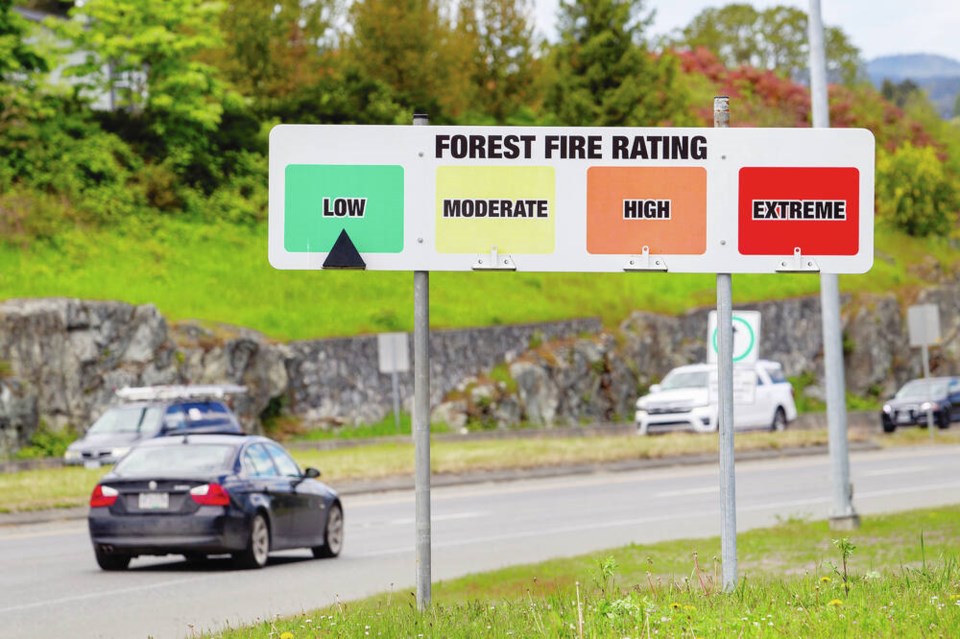April on the Island was quiet for wildfires, especially compared with last year, when the Newcastle Creek fire near Sayward began April 1 — the traditional start of the wildfire season — and continued for weeks.
The 2023 fire season was the most destructive in B.C.’s recorded history, with more than 2.84 million hectares burned around the province and tens of thousands of people forced to evacuate.
By late April of this year, there were already more than 170 fires in the B.C Interior, including the northeastern region, and parts of Alberta, and the province has warned of a “prolonged fire season.”
But so far this wildfire season, the Island has only seen three wildfires, all of them under one-tenth of a hectare.
“That could be a small patch of grass or a smouldering tree,” said Kimberly Kelly, an information officer for the Coastal Fire Centre, which includes Vancouver Island. “We don’t have a measurement smaller.”
That could change as the weather warms, however.
Summer is still about six weeks away — it officially starts on June 20 — but the next several days will offer something of a preview on the Island, with sunny, warm weather that could persist into the middle of next week, said Environment Canada meteorologist Brian Proctor.
The balmy weather is settling in as a weather system that brought some intermittent rain moves eastward.
“It general terms, fair skies and nice weather,” Proctor said.
By the time Thursday comes, expect temperatures of about 18 C near the water and 22 C inland in Victoria, Nanaimo and Comox. As usual, Port Alberni is predicted to be the hotspot at up to 28 C on Friday.
Kelly said the forecast “puts us on alert” when it comes to wildfires.
She said the fire-danger rating could “creep up” in some areas over the next few days from low to moderate, or even to high.
Kelly said the fire centre is hopeful for some continuous periods of rain over the next few months “to set us up for a less-active wildfire season.”
She cautioned anyone planning to enjoy the streak of good weather in the outdoors to use care with campfires.
The Coastal Fire Centre brought in a campfire ban last year on June 8, but didn’t impose one until Aug. 4 in 2022.
As for the summer, Proctor said indications are that temperatures will be in the normal range in the province.
“We’re not looking for any super heat waves — there’s nothing looking like that at this point.”
>>> To comment on this article, write a letter to the editor: [email protected]



